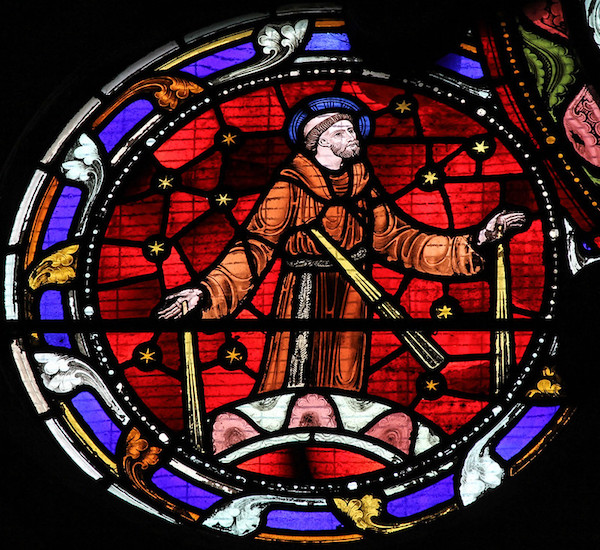For all his elegance of expression, Luke is in many ways the hardest-hitting of the evangelists. Whereas Matthew carefully nuances his version of the first beatitude, “blessed are the poor in spirit”, Luke has the stark and arresting, “blessed are the poor”. And he drives the point home even harder by introducing a corresponding woe: “Woe to you if you’re rich”.
Should Luke be taken literally, or has Matthew captured the real meaning? To what degree can this teaching of Jesus, especially in its stark, Lucan form, be reconciled with having possessions at all, even the necessities of life, let alone luxuries?
Though poverty in spirit may well induce some to espouse poverty, it’s evident that material poverty does not necessarily conduce to poverty in spirit. Material poverty when imposed by circumstances can leave us resentful, bitter and hungry. When self-imposed, it can lead to scrupulosity, irresponsibility, waste (especially in a community setting), pride and possessiveness, however little we possess. So there is no virtue in material poverty, per se. Material poverty is to be alleviated if circumstantial and treated with great caution if self-imposed.
The most famous person in history (so far), to take Luke’s version literally was, of course, Saint Francis of Assisi, the Poverello, the Little Poor Man of Assisi, for whom poverty in spirit entailed possessing absolutely nothing. But even in the case of St Francis, his poverty wasn’t primarily about the things he didn’t possess. In rejecting possessions, he was banishing from his life acquisitiveness and a whole host of other closely associated vices.
Acquisitiveness, of course, goes deeper than things. It is a futile propensity to seek security in the ephemeral and the insubstantial: in our self-image, for instance, or our hard-won reputation, or our need to be in control at all costs or our overpowering need to be always right. We even cling to our miseries, finding it difficult to let go of an ancient injury, a shameful memory; and, of course, as pointed out by Jesus later in the Sermon on the Mount, we cling to our equally futile anxieties about tomorrow.
What St Francis graphically and compellingly taught by his own freely-chosen material poverty was that our happiness is served not by clinging to anything, but by letting go of everything. He was a master of the art of letting go. Most conspicuously, he let go of material things, but in reality he was letting go of those ruling illusions that distort our vision and mislead our lives: he let go, for instance, of that ruinous tendency from which we all suffer to estimate ourselves and others according to status, security and worldly standing. He freely let go of his own personal reputation in society – people genuinely thought he was mad; he let go of his fastidiousness – he kissed the suppurating sores of the leper; and he let go of ambition – he joined the ranks of the homeless and the destitute, choosing to possess, quite literally, nothing. He let go of all these things because for him, they were an obstacle to what he really wanted, what he wanted above all else. He let go of everything lest it got in the way of being able fully and uninhibitedly to love God, in Himself and in his creation.
St Francis’s personal poverty was extreme, harsh and unremitting. He chose to die naked on the ground, just as he had earlier dramatically stripped himself naked before the gathered people and Bishop of Assisi, in a gesture intended to affirm his utter dependence on God his Father. His wasn’t the ordered poverty of a well-run monastery or the romantic poverty of the bohemian: it was the precarious and vulnerable poverty of the really poor.
The chief illusion of which he let go was the illusion of ownership, a ruling illusion that so easily and imperceptibly leads to our being possessed by what we possess. But no matter how many things we possess, we don’t actually own anything. We can’t count even our life our own: it is given to us and taken from us in utter dependence on God’s will.
In letting go of everything, save love of God and his creation, and love of neighbour, St Francis turned the world’s values upside down: where others saw security, he saw captivity; what for others represented success, was for him a source of strife, a distraction from and an obstacle to loving God and neighbour wholeheartedly.
The essential point is that his letting go was a positive, not a negative. The space previously occupied by all these other things, was now filled with something the world cannot give us. What his life teaches us is that letting go may leave you empty-handed, but clinging on to whatever you can get your hands on, leaves you empty-hearted.
St Francis’s holiness wasn’t defined by material poverty but by what motivated it: namely, his passionate desire and love for God, and the irrepressible and inexpressible joy to which it so vividly gave rise. Writing about St Francis, the author Edward Hays has it: “Assisi’s little man in rags is the patron of passion. He is a holy pyromaniac, eager to set our hearts madly ablaze with love for God, for Christ, for all humanity, and for all creation.”
St Francis’s inimitable, absolute poverty points us to the true purpose and goal of our lives and what really matters, where alone we find, as he did, true, lasting happiness. In his own words, in the earlier of his two Rules:
Wherever we are, in every place, at every hour, at every time,
every day and continually,
let all of us truly and humbly believe,
hold in our heart,
love, honour, adore, serve, praise
bless, glorify, exalt, magnify
and give thanks to the Most High and Supreme Eternal God,
Trinity and Unity, Father, Son and Holy Spirit:
to Him who is Creator of all, Saviour of all,
without beginning or end, unchangeable, invisible,
indescribable, ineffable, incomprehensible, unfathomable,
blessed, praiseworthy, glorious, exalted, sublime, most high,
gentle, lovable, delightful and, above all else, totally desirable,
for ever and ever. Amen



 Loading ...
Loading ...
What do you think?
You can post as a subscriber user ...
User comments (0)